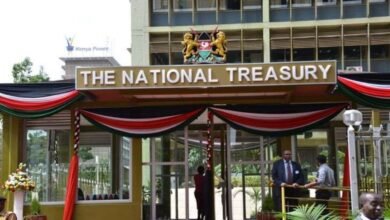
Proposed fuel tax cuts by Members of Parliament mean that the National Treasury would lose in excess of Ksh.39.3 billion if implemented.
This is according to an analysis of the implication of the proposed tax cuts by the National Assembly Committee on Finance and National Planning.
Treasury will lose the greatest sum of Ksh.22.63 billion when the Value Added Tax (VAT) on petrol, Kerosene and Diesel is cut into half. The current VAT on fuel products stands at eight percent.
Meanwhile, Ksh.11.98 billion will be lost from the reduction of the petroleum development levy to Ksh.2.90 from the current Ksh.5.40.
The exchequer is also expected to lose in excess of another Ksh.4.69 billion from the halving of VAT on Liquid and Petroleum Gas (LPG) to eight percent from a greater 16 percent currently.
According to a report by Citizen, if all this is adopted the proposal will force Treasury’s hand in lowering overall spending across the ongoing 20201/22 fiscal year to seal the void created by vacated fuel taxes.
Oil marketing companies (OMCs) and suppliers are also set to part with billions should the government cut margins as proposed by the Committee.
The report proposes that the suppliers take a Ksh.3 haircut in margins across the board.
This would see supplier margins in the supply of petrol, diesel and kerosene come down to Ksh.9.39, Ksh.9.36 each for the three fuel products.
Both the National Treasury and the Kenya Revenue Authority (KRA) have fought off lower tax rates in a move to bolster domestic revenue mobilization.
Fuel taxes and levies account for an estimated 14 percent of the annual national government revenues meaning a reduction will require either expenditure cuts or increased borrowing to bridge the financing gap.
Revenue Target
With the proposed changes to lower the cost of living in Kenya, a dilemma is ensuing considering Treasury intends to raise the revenue collection threshold to 17.5 percent for the FY 2022/23.
Also Read:
- MPs fine CS Munyes Ksh.500,000 for snubbing summon on fuel
- Tanzania’s President Samia orders tax reduction on fuel
- Fuel prices to go down in next review
According to Yatani, the projected 17.5 threshold is for the overall Kenya’s economic output of better known as Gross Domestic Product (GDP).
He is attributing revenue growth to the performance of the ongoing reforms in tax and revenue administration, reopening of the economy and increased demands for commodities and services.
“The last few months have been good for us. Revenue collection has increased and we’ve surpassed our targets with over 5 percent, sometimes even 6 percent”
The proposals focus on President Uhuru Kenyatta’s Big 4 Agenda, post-COVID-19 economic strategy, macroeconomic stability as envisioned in vision 2030 and other regional economic frameworks in the making of the 2022/2023 budget proposals.
However, with the country still facing a lot of challenges that coincide with the already heightened political temperatures in readiness for the 2022 general elections, Kenya’s economic recovery is still vulnerable.
“Unless we mitigate these challenges, they might easily erase the gains made so far…” said Kanini Kega, Chairman Parliamentary Budget Committee.
The government has promised to monitor political developments and respond appropriately to safeguard the economy and livelihoods.





